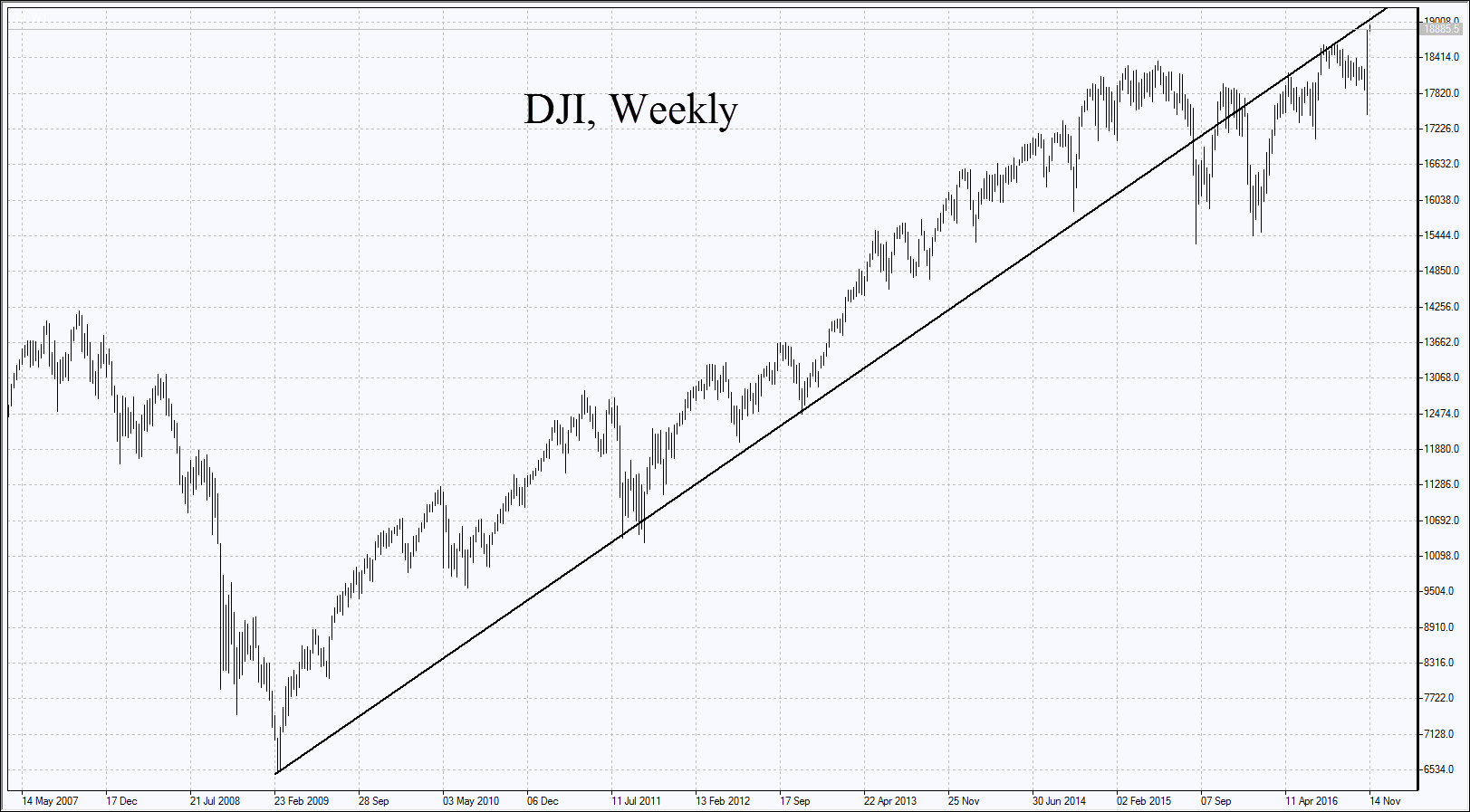By IFCMarkets
The US stock market went up on Friday, while the weekly S&P 500 advance of 1.2% was the biggest since July. After the release of the negative macroeconomic data the market participants decided the Fed’s rate hike was unlikely. This caused the US Dollar weakening and the shares growth. All these price movements of the stock market were within the neutral trend. So, on Friday the University of Michigan consumer sentiment index for September hit the yearly record low reaching 85,7 points. The PPI dropped by 0,8% in August year-on-year which was the 7th decline in a row. According to investors, this may indicate the fable growth with deflationary risks. The fall of the Michigan index may foreshadow the worse labour market conditions. The current unemployment level of 5.1% in the US is the lowest in 7.5 years. Today no important macroeconomic news is expected in the US.
The European shares are on a slight increase due to the luxury companies reports on the slightly growing demand of China on their goods: Richemont (+1,8%) and Swatch (+2,7%). The Television Francaise shares rallied 7% on the news the French government authorized the advertisement on the national channels. Today no important macroeconomic news is expected in the EU. The Euro is strengthening against the US Dollar for the 7th session in a row.
The Nikkei index was looking down today following the Chinese stock indices. The telecoms shares fell in price after the Japanese prime-minister Shinzo Abe appealed for cutting the cellular tariffs. Early on Tuesday morning the forthcoming Bank of Japan meeting and the resulting press-conference are to be held. Investors do not expect the further easing of the monetary policy. As a result, the banks Softbank Group (5,5%), KDDI Corp. (-8,6%) and NTT Docomo (-9,8%) were on decline.
The Chinese industrial production growth in August was much worse than the forecasted 6.5% totaling 6.1% year-on-year. This data were published on Sunday following the negative news on the contracting loans in RNB on Friday. The signals of the Chinese economic slowdown drive the commodities down. In particular, the Copper became cheaper today after hitting a 2-month high a couple of days ago. The gold prices, on the contrary, became stable near the month low after the week US statistics made the possible Fed rate hike less likely.
The cotton prices have practically ignored the news on its import to China contracting to 70,000 tonnes in August which is the lowest since 2005 and is 65.8% below the level of August 2014. China is currently selling on th internal market some of the official cotton reserves of 11 bln. tonnes. For 11 months of 2014/2015 the import has contracted by 44% to 1.67 mln. tonnes. The Barclay investment bank is of opinion that China may become the netto-exporter of the cotton till 2020.
Free Reports:
 Get Our Free Metatrader 4 Indicators - Put Our Free MetaTrader 4 Custom Indicators on your charts when you join our Weekly Newsletter
Get Our Free Metatrader 4 Indicators - Put Our Free MetaTrader 4 Custom Indicators on your charts when you join our Weekly Newsletter
 Get our Weekly Commitment of Traders Reports - See where the biggest traders (Hedge Funds and Commercial Hedgers) are positioned in the futures markets on a weekly basis.
Get our Weekly Commitment of Traders Reports - See where the biggest traders (Hedge Funds and Commercial Hedgers) are positioned in the futures markets on a weekly basis.
The soy price stopped falling and is struggling for growth. China, the world leading soy importer, increased its demand for it by 29% to 7.78 bln. in August compared to the same period of the previous year. Import for 8 months of 2015 has gained 9.8% reaching the fresh all-time high of 52.39 bln. tonnes. In our opinion, the forecast by the China National Grain and Oils Information Centre, forecasting the import to China to contract to 6.47 mln. tonnes in September, impedes the soy prices from the more active growth. Moreover, the US Agricultural Ministry on Friday suddenly revised up the soy crop forecast in the US from 3.916 bln. bushels to 3.935 bln. given the agreeable weather in Iowa, Minnesota and Nebraska states.
Market Analysis provided by IFCMarkets